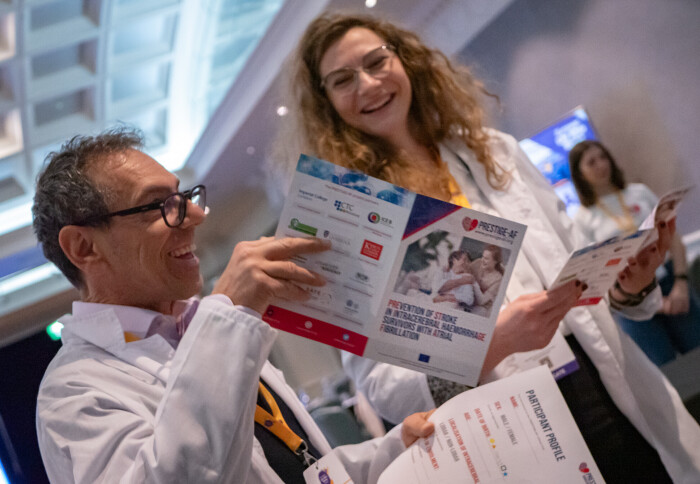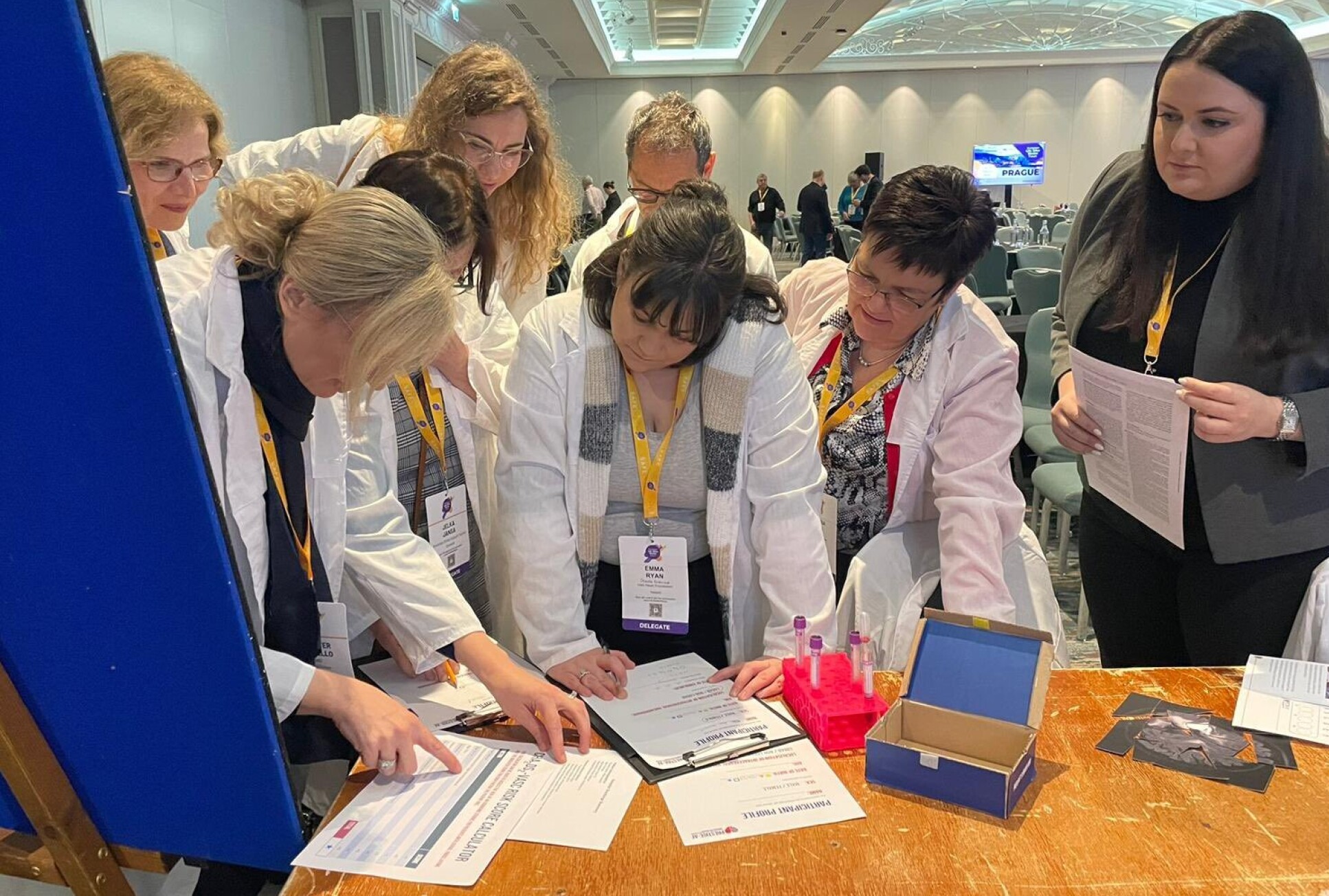Bringing a stroke trial escape room to the European Life After Stroke Forum

Delegates at the European Life After Stroke Forum in Dublin took part in the PRESTIGE-AF clinical trial escape room.
On 11-12 March, members of the PRESTIGE-AF team from Imperial College London ran the PRESTIGE-AF Escape Room at the European Life After Stroke Forum (ELASF) 2024 in Dublin, Ireland.
Launched in 2019 by Stroke Alliance For Europe (SAFE), the conference aims to create an opportunity at least once a year for those who operate in the area of life after stroke, whether researchers, scientists, medical professionals, health policymakers, advocacy, or support groups, stroke survivors and their carers, to come together and share and network.
The Forum shone a light on a range of important areas, including how we can highlight the voices of stroke survivors, gender disparities and mental health in life after stroke, and secondary stroke prevention.
As part of the programme, PRESTIGE-AF presented the escape room as a novel form of communicating research and ran four sessions for the attendees to try. Working as a team, the groups had to tackle various puzzles – from a brain MRI scan jigsaw to performing a blood spot that magically made the code to a locked case appear – in order to find out the information required to enrol a participant onto the PRESTIGE-AF clinical trial.

It was wonderful being able to showcase our flagship engagement activity for people with such a wide range of backgrounds and experiences with stroke, including getting valuable insights from stroke survivors and patient advocates.

The PRESTIGE-AF Escape Room has previously been showcased at Imperial Lates, the Great Exhibition Road Festival 2023, Science Museum Lates, as part of Imperial's STEM Futures Programme, and at the University of Wurzburg's Winter School for medical students.
PRESTIGE-AF has received funding from the European Union's Horizon 2020 research and innovation programme under grant agreement No. 754517.
Article text (excluding photos or graphics) © Imperial College London.
Photos and graphics subject to third party copyright used with permission or © Imperial College London.
Reporter
Harry Jenkins
Enterprise